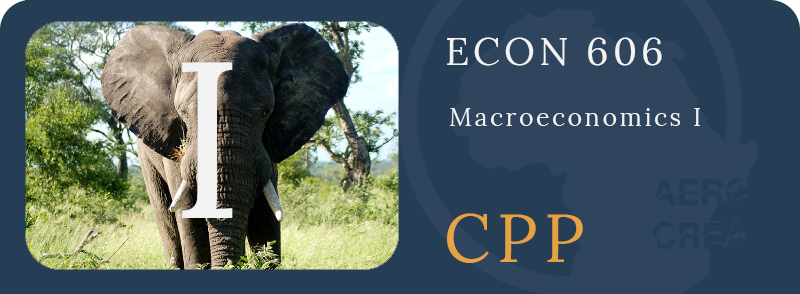
Macroeconomics I (CPP)
This course is an advanced treatment of contemporary macroeconomic theory that prepares students to carry out research. Current controversies will be discussed as well as the relevance of theoretical and policy issues in an African context.
Objectives of the Course
At the end of the course, a student is expected to:
- Thoroughly understand the structure of a macroeconomic system and its underlying theoretical framework as well as controversies and debates;
- Use methodology and techniques studied in conceptualizing and postulating relevant macroeconomic issues;
- Evaluate macroeconomic policies; and
- Cultivate a critical perspective to current developments in Macroeconomics.
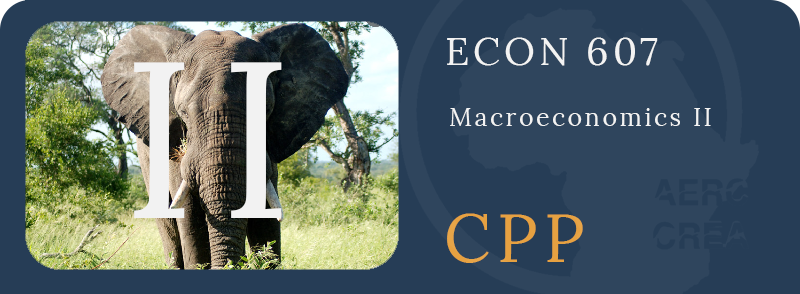
Macroeconomics II (CPP)
This course is an advanced treatment of contemporary macroeconomic theory that prepares students to carry out research. Current controversies will be discussed as well as the relevance of theoretical and policy issues in an African context.
Objectives of the Course
At the end of the course, a student is expected to:
- Thoroughly understand the structure of a macroeconomic system and its underlying theoretical framework as well as controversies and debates;
- Use methodology and techniques studied in conceptualizing and postulating relevant macroeconomic issues;
- Evaluate macroeconomic policies; and
- Cultivate a critical perspective to current developments in Macroeconomics.
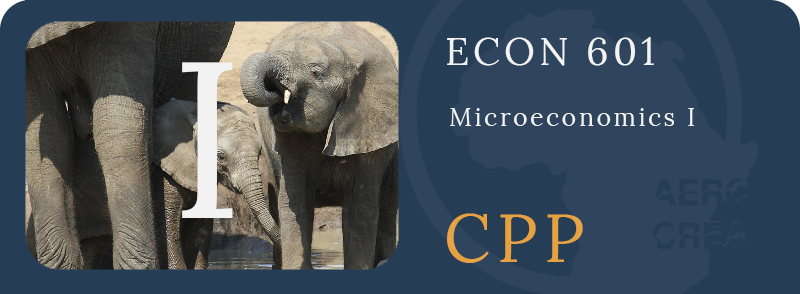
Microeconomics I (CPP)
The main objective of the course is to provide participating graduate students with a comprehensive understanding of advanced microeconomic theory so that at the end of the course they will be acquainted with the state of the art in microeconomic analysis. The students will be equipped to apply microeconomic concepts and tools in the African environment. The course is designed for one-semester and will treat microeconomic issues at an advanced level. The topics covered will include: consumer theory; theory of production and supply; theory of market structure; general equilibrium theory; choice under uncertainty and game theory.
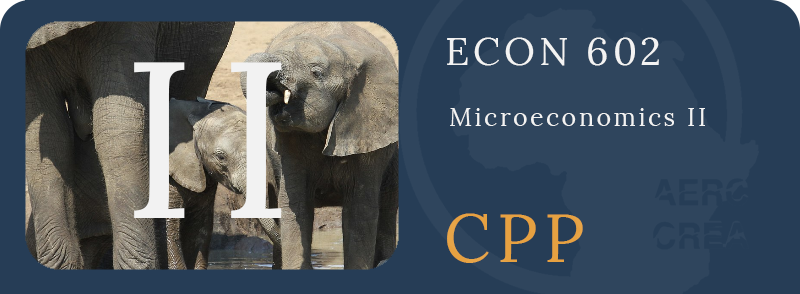
Microeconomics II (CPP)
The main objective of the course is to provide participating graduate students with a comprehensive understanding of advanced microeconomic theory so that at the end of the course they will be acquainted with the state of the art in microeconomic analysis. The students will be equipped to apply microeconomic concepts and tools in the African environment. The course is designed for one-semester and will treat microeconomic issues at an advanced level. The topics covered will include: consumer theory; theory of production and supply; theory of market structure; general equilibrium theory; choice under uncertainty and game theory.
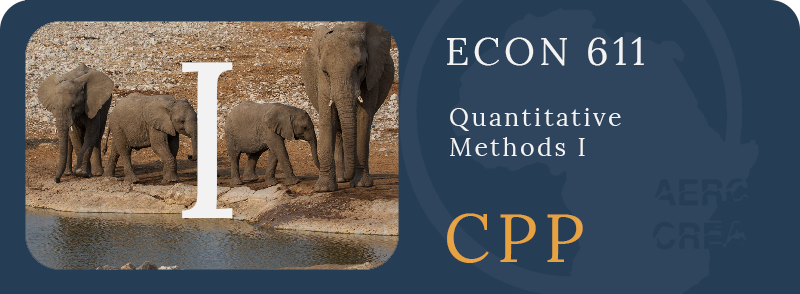
Quantitative methods I (CPP)
This course provides an advanced treatment of quantitative methods designed for Ph.D students in economics who have undertaken courses in mathematics and statistics for economists, and econometrics at the master’s degree level. The aim is to prepare the students to pursue microeconomic and macroeconomic analysis at an advanced level. To ensure that the course is pitched at a high enough level for PhD, extensive use of matrix algebra is recommended. Further, to make the course relevant to economists, it is recommended that the course be taught using economics examples.
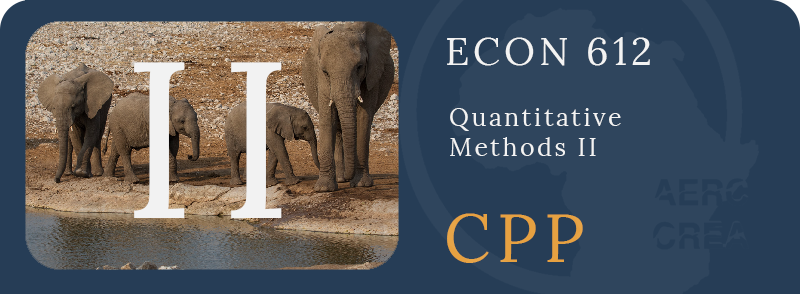
Quantitative methods II (CPP)
This course provides an advanced treatment of quantitative methods designed for Ph.D students in economics who have undertaken courses in mathematics and statistics for economists, and econometrics at the master’s degree level. The aim is to prepare the students to pursue microeconomic and macroeconomic analysis at an advanced level. To ensure that the course is pitched at a high enough level for PhD, extensive use of matrix algebra is recommended. Further, to make the course relevant to economists, it is recommended that the course be taught using economics examples.